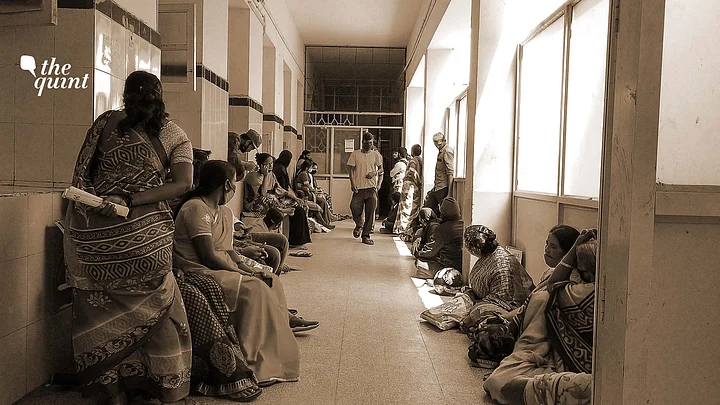Soon after taking over as Union Minister of State for Health and Family Welfare in July 2021, Dr Bharati Pravin Pawar busted a myth that India was way below the World Health Organization (WHO)-recommended doctor-patient ratio of one doctor per 1,000 population. She informed the Lok Sabha that there is one doctor for every 854 people in the country, assuming 80 per cent availability of 12.68 lakh registered allopathic doctors and 5.65 lakh AYUSH doctors.
Many but Mostly Mediocre Doctors
India has the largest number of medical colleges in the world, both of modern medicine and AYUSH. Close to 90,000 MBBS graduates in these 595 medical colleges of Modern Medicine (Allopathy) and 53,000 graduates in another 733 AYUSH medical colleges are produced every year. More than 100 AYUSH Medical colleges are proposed to come up in the academic year 2022-23. And there is a clamour for more. Public representatives of various political parties are pressing their political masters to promise more medical colleges in their constituencies, obviously for “showing development” to their constituents.
At this rate, by the year 2030, India will have a million and a quarter additional but mostly mediocre doctors. Contrary to the popular perception of scarcity of medical doctors, a large section of young, newly qualified physicians is spending several years in a dysfunctional state because of few employment opportunities for qualified doctors in the government or public sectors and poor, exploitative salaries in the private sector. Most of these young graduates then try their luck to get into postgraduate courses after spending a lot of time, money and effort in preparing for the NEET. And here comes the big elephant in the room – reservations, quota and merit.
Safety of Patients Can't Be Compromised
As things stand now, a vast majority (way beyond the ceiling of 50%) of seats are reserved. The complexity of the quota system has not only decreased the availability of ‘general’ or ‘open-merit’ postgraduate seats by a whopping 42% this year, but it has also put these candidates to a disadvantage because of rotational reservation having been put in place, wherein certain seats would be open to them only once in two years. As a result, in effect, the ‘open merit’ candidates find themselves to be the marginalised section, by definition.
The honourable Supreme Court of India in its recent judgment holding the current reservation in NEET valid, said, “While examinations are a necessary and convenient method of distributing educational opportunities, marks may not always be the best gauge of individual merit.” It goes on to say the meaning of merit itself cannot be reduced to marks even if it is a convenient way of distributing educational resources. But it stops short of suggesting any other yardstick for gauging merit. Under the circumstances, the disparity in marks for distribution of seats among the open-merit and reserved candidates is mind-boggling.
The importance of the fallout of such a policy being pursued over the years is not lost on anyone.
Experience tells us that the quality of young medical graduates and even postgraduates has deteriorated over the years. This assumes great importance because a doctor deals with life day in and day out, and one cannot afford to have doctors in the system who could compromise the safety of patients.
We Are Staring at Medical Brain Drain
The quality of doctors being produced, for what it is, makes it difficult to refute the argument posed by employers in the private health sector for giving unsustainably low salaries. They argue that the quality of these fresh graduates leaves a lot to be desired.
It may come as a surprise that except in metropolitan cities, a young medical graduate at entry-level commands a salary not more than a call centre employee would, for a work that has no regular hours and often stretches to 90 to 100 hours a week.
As things prevail, unless some urgent remedial measures are taken to address the problem, the healthcare system in India in the next few years will be bogged down with the problem of having a vast pool of mediocre, unemployable doctors on the one hand and a severely depleted pool of competent medical professionals on the other, because of those leaving the shores of this country for far better prospects. Those who can afford it are already saving for their children’s quality medical education abroad, opening the floodgates for brain drain.
In fact, we are already past the wake-up call.
(Dr Ashwini Setya is a Senior Gastroenterologist and Programme Director at Delhi’s Max Super Speciality Hospital. He can be reached at ashwini.setya@gmail.com. This is an opinion piece. The views expressed above are the author’s own. The Quint neither endorses nor is responsible for them.)
